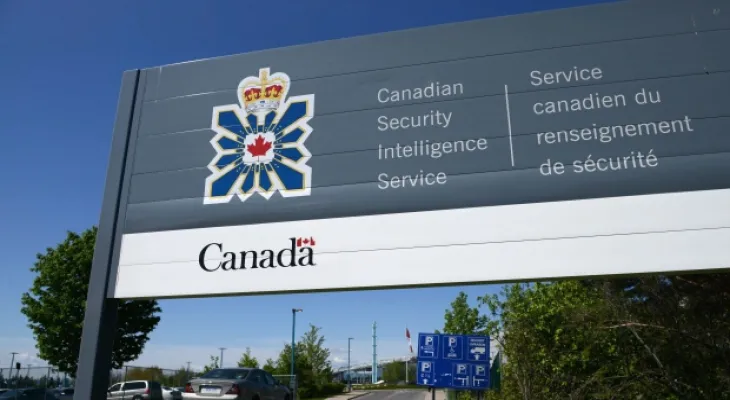Search here
Newspaper
Search here

Arab Canada News
News

Published: May 6, 2024
The Canadian security intelligence agency warned that the war between Israel and Hamas has led to a sharp increase in "violent rhetoric" from "extremist entities" which may drive some in Canada to resort to violence.
This statement comes as newly released documents detail discussions that took place last fall between the intelligence agency, the federal public safety department, and Muslim and Jewish leaders regarding the reported rise in hate crimes stemming from the conflict.
Organization spokesperson Eric Blessom wrote: "While it is difficult to predict the long-term effects of the current crisis, it is clear that this conflict has heightened tensions within our community."
"Violent statements from extremist entities have increased since the attack launched by Hamas, and as the conflict continues, these events may influence the intentions of some individuals to rally for violence."
The agency's role is to monitor and identify any threats and alert the government, with Blessom adding that this does not include legitimate protests and opposition protected by the Charter of Rights and Freedoms.
The documents released to the Canadian press under the Access to Information Act include details summarizing discussions held separately by federal officials with Jewish and Muslim leaders regarding the ongoing internal unrest.
One of these documents states that representatives from the Canadian security intelligence agency "assured all participants that they would continue to monitor threats and seek evidence of planning for attacks."
Blessom stated that the agency is still engaging in conversations with leaders of Muslim and Jewish communities to listen to their concerns, adding that director David Vigneault met with the federal envoy for combating anti-Semitism and Islamophobia last fall.
During their meetings, federal officials listened to concerns from Muslim and Arab leaders regarding the public discourse surrounding the war, including what one attendee felt was "silence" from the government regarding how the situation in the Middle East affects the safety of Palestinians and refugees, as well as other Muslims living in Canada.
Concerns about freedom of speech were also raised.
Activists are receiving violent backlash, described as anti-Semitic, and facing various repercussions for chants like "From the river to the sea, Palestine will be free," as well as calls for "intifada."
In Arabic, the term intifada has meanings that include rising against oppression; in English, it is commonly associated with two periods of intense conflict in the Israeli-Palestinian struggle, which involved a series of attacks by Palestinian groups on public places within Israel.
The memo notes that community leaders informed officials that activists are subjected to "intense monitoring" and "their right to freedom of expression is being stifled."
Internal emails sent to the Canadian RCMP police commissioner, Mike Duhem, which were also obtained through Access to Information laws, show that officers are documenting chants and slogans appearing in what was described as a pro-Palestinian protest held in Toronto in late October.
Deputy Commissioner Mark Flynn wrote: "It is still legal and does not appear to be turning to violence."
Jewish leaders, along with Prime Minister Justin Trudeau and others, criticized examples of demonstrators glorifying the Hamas attack on October 7 against southern Israel in protests across cities in Canada.
One of these incidents is still under investigation by Ottawa police.
The documents clarify how federal officials have continually heard from Jewish leaders about the need for police to take further action to stop "hate speech expressed during the marches." They specifically refer to the use of the term "Zionism."
"As the overwhelming majority of Jews consider themselves Zionists and believe in the need for a Jewish state... calls for attacks against Zionists should be viewed as calls for attacks against Jews."
The memo stated that the Royal Canadian Mounted Police had been providing front line members with a "toolkit" explaining the historical context of the conflict to help officers "identify overt and covert signs of hatred that can be seen in protests."
The national force also encouraged local police to pay attention to businesses and schools owned by Jews, not just Jewish synagogues and community centers, according to a summary dated November 29.
The documents also indicate that the Canadian public safety department will reach out to universities "to discuss alleviating rising tensions and anti-Semitism on campuses," and later stated it was relaying information to schools "about the current threat environment."
In the months that followed, pro-Palestinian protesters set up camps at McGill University in Montreal, the University of Ottawa, the University of British Columbia in Vancouver, and recently at the University of Toronto.
University administrators say that hatred will not be tolerated, warning that students will face consequences if they violate university policy.
Comments